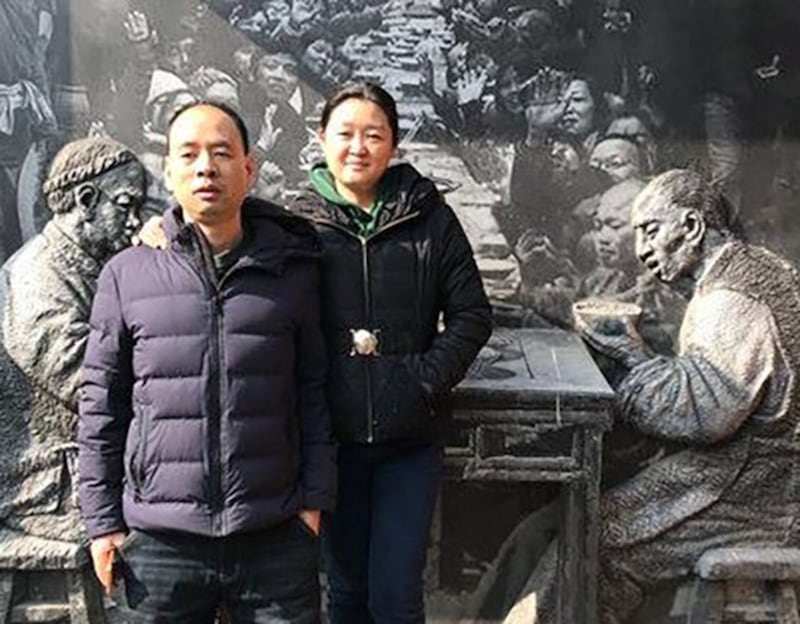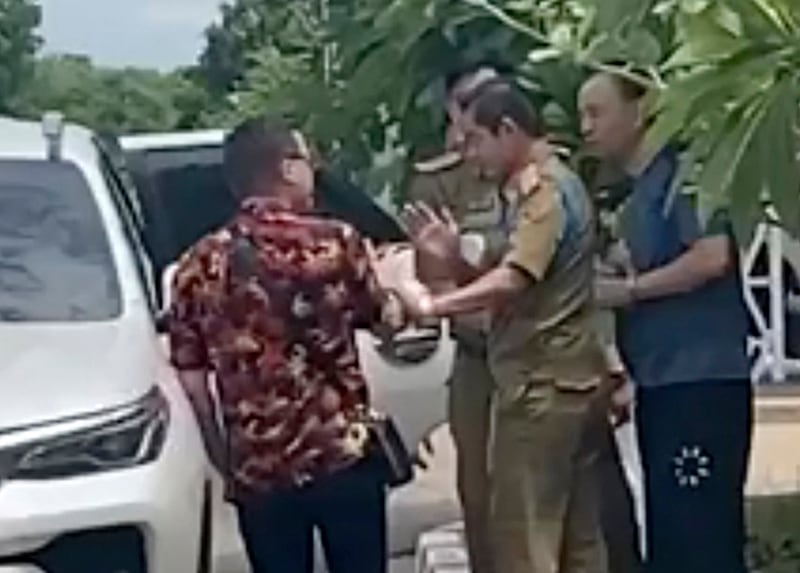[ Read coverage of this story in Chinese.Opens in new window ]
Chinese authorities are moving ahead with the prosecution of rights lawyer Lu Siwei after detaining him in Laos last year, his wife said on Tuesday.
Lu, 51, was en route to be reunited with his family in the United States when he was arrested in Vientiane on July 28, 2023, and forcibly repatriated to China in what rights activists said was yet another example of Bejing's transnational law enforcement.
On arriving back in China, he was charged in the southwestern province of Sichuan with "illegally crossing a border" and released on bail pending trial.
But his freedom ended with his formal arrest last week, part of which was documented in a video clip he shot at the time, and shared with his wife, who lived in the United States.
"They are outside, knocking on the door," Lu says in the video. "They must be arresting me. Don't worry. There's no way out of this."

Lu's wife Zhang Chunxiao received the video message the following morning, saying Lu was likely taken away at around 6.00 p.m. Beijing time on Oct. 10.
"It was the middle of the night here, so he didn't contact me," she said.
Police on Tuesday transferred Lu's case to the state prosecutor's office in Chenghua district on Tuesday, paving the way for a trial, Zhang Chunxiao told RFA Mandarin.
Repeated calls to the Chengdu municipal police department and the Chenghua district police station rang unanswered during office hours on Oct. 10.
Border crossings common
U.S.-based lawyer Wei Shuiping, who is a friend of Lu's, said harsh punishments for illegal border crossings are rare in China because so many people do it, especially between China and its Southeast Asian neighbors.
"Border area residents often move back and forth across borders, so it's very common," Wei said, adding that the usual first punishment for such a crime is a brief administrative sentence of up to 15 days.
He said Lu Siwei had a valid visa for the United States when he left China in 2023, and had previously been prevented from traveling there to take up an offer of a visiting scholarship by border guards in Shanghai.
RELATED STORIES
[ Chinese rights lawyer Lu Siwei is out on bail, pending trialOpens in new window ]
[ Secret New York police station is mere sliver of Beijing’s US harassment pushOpens in new window ]
[ Laos lied about repatriation of rights lawyer, wife saysOpens in new window ]
Zhang has hired prominent rights attorneys Bao Longjun and Zhang Lei to defend her husband, his wife said.
"Zhang Lei met with Lu Siwei yesterday," she said. "He was in a fairly calm state, mentally, because he had prepared himself for the worst-case scenario while he was out on bail."
She added: "Siwei told him that the conditions in detention are very poor, and that he can only sleep on his side."
Crowded detention centers
Detention centers in China are overflowing amid a sharp rise in the number of arrests in the first half of this year, with as many as 20 people forced to sleep in cells originally designed for 10.
According to the rights website Weiquanwang, Lu is currently being held in Chengdu Detention Center, where 27 detainees are all crammed into a cell measuring 20 square meters.

Zhang said she had bought some items for Lu online, but that they had yet to be delivered to him.
Lu's cross-border arrest in Laos drew international criticism, with Washington condemning the action in October 2023, and calling on China to make his location public.
Translated by Luisetta Mudie. Edited by Malcolm Foster
